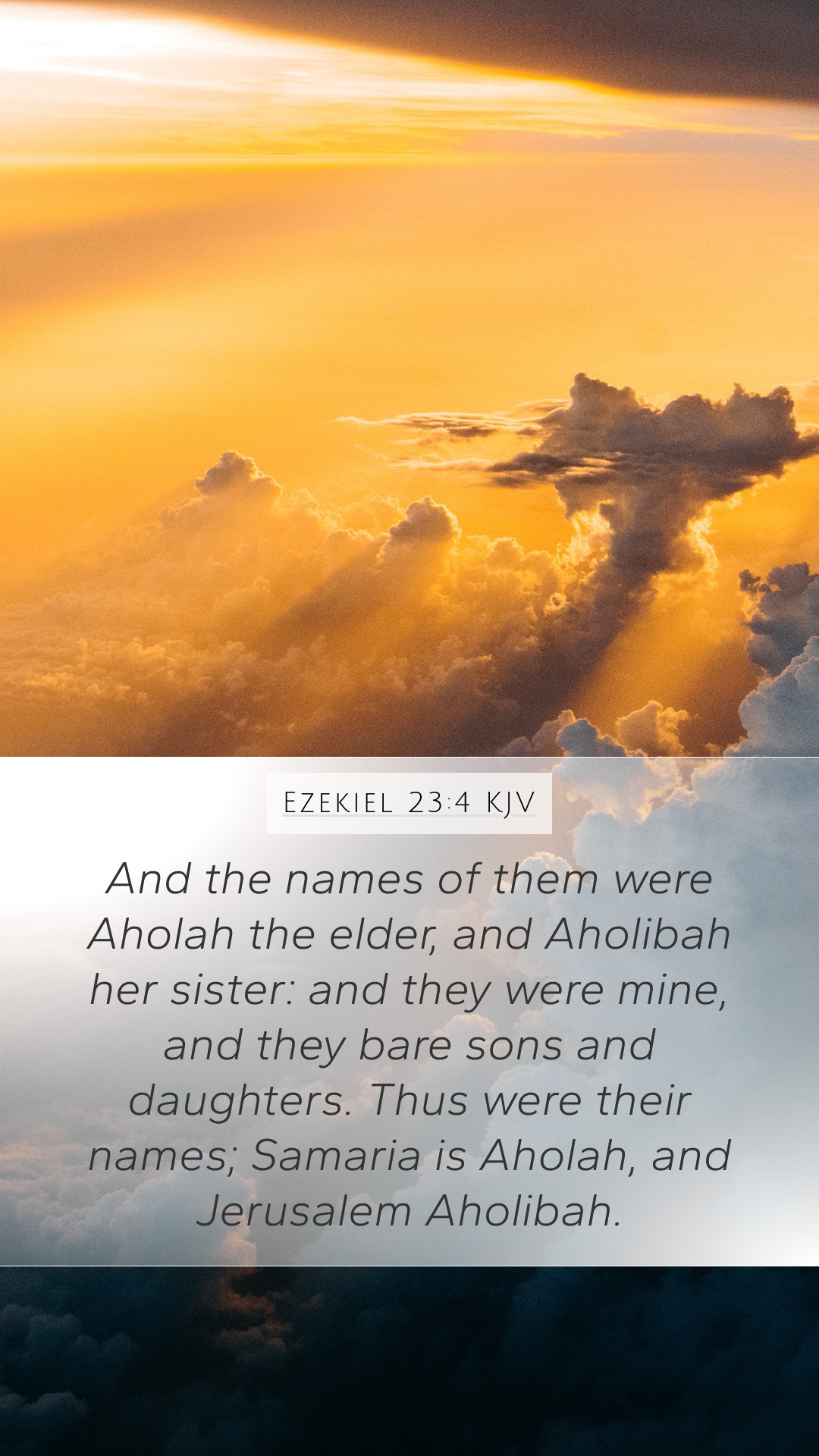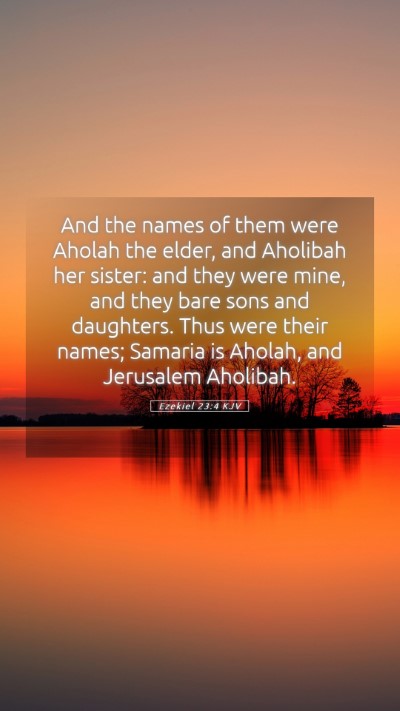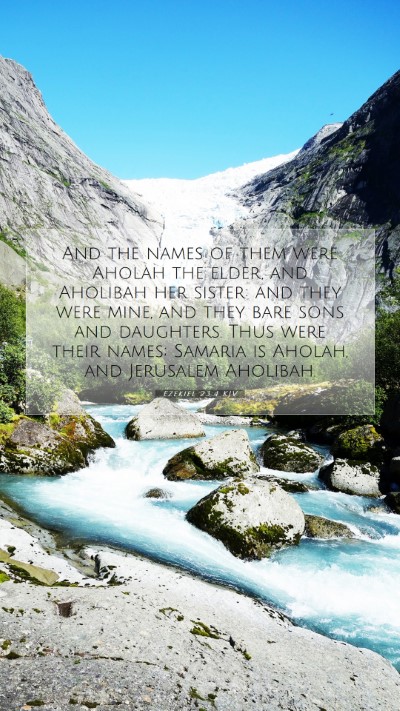Bible Verse Meaning and Commentary on Ezekiel 23:4
Verse Reference: Ezekiel 23:4
Verse: "And the names of them were Aholah the elder, and Aholibah her sister: and they were mine, and they bare sons and daughters. Thus were their names; Samaria is Aholah, and Jerusalem Aholibah."
Overview
This passage from Ezekiel addresses the two sister cities of Samaria and Jerusalem, personified as Aholah and Aholibah, respectively. The names represent the two kingdoms of Israel and Judah, emphasizing their roles in biblical history and their relationships with God.
Commentary Insights
-
Matthew Henry's Commentary:
Henry emphasizes the significance of names in Scripture, noting that Aholah (meaning “her tent”) represents Samaria's idolatrous worship and infidelity, while Aholibah (“my tent is in her”) symbolizes Jerusalem's tumultuous history and divine presence. He articulates the idea that these cities, endowed with spiritual heritage, ultimately fell into sins that led to their judgments, drawing a parallel to the fidelity expected in God's covenant.
-
Albert Barnes' Notes:
Barnes provides an analysis of the text's historical context, explaining the prophetic nature behind the names. He notes that Aholah, representing Samaria, had greater infidelity to God through her alliances and idolatries. In contrast, Aholibah, representing Jerusalem, is portrayed as having initiated a relationship with God but had also strayed. He reflects on the nature of divine judgments against both kingdoms, underscoring that despite their failings, they were loved by God.
-
Adam Clarke's Commentary:
Clarke focuses on the symbolic nature of the names and their implications for understanding God’s relationship with His people. He suggests that Aholah and Aholibah encapsulate the spiritual decline of both kingdoms and serve as a representation of God’s lament for His wayward people. Clarke calls attention to the need for repentance and emphasizes that God’s intention was always to guide them back to Himself.
Meaning and Application
The meanings of the names Aholah and Aholibah extend beyond mere allegory; they encapsulate the historical infidelity of Israel and Judah. This passage encourages readers to understand the gravity of turning away from God, as well as the hope for redemption through repentance.
Key Themes
- Idolatry and Sin: Aholah and Aholibah symbolize the dangers of idolatry and disobedience to God, serving as a reminder for believers to maintain their faithfulness.
- Divine Judgment: The verse indicates that despite the love the Lord had for His people, unfaithfulness results in judgment, a core theme in prophetic literature.
- Hope for Restoration: Even within judgment, the message of potential restoration remains, which forms a significant part of the prophetic message in Ezekiel.
Cross References
- Hosea 1:2: God's charge against Israel as an unfaithful wife.
- Jeremiah 3:6-10: A discussion of Judah's unfaithfulness compared to Israel's idolatry.
- Isaiah 1:21-23: The depiction of Jerusalem as once faithful but now corrupt.
Conclusion
Understanding Ezekiel 23:4 through these commentaries unveils a rich tapestry of historical, spiritual, and moral lessons. This verse acts as a somber reminder of the consequences of straying from divine commandments while simultaneously offering a pathway towards repentance and restoration. For those engaged in Bible study, this verse provides a deep well of Bible verse meanings, Bible verse interpretations, and insights into the understanding of Scripture.
Further Study Resources
For those interested in exploring deeper meanings and interpretations, consider utilizing various Bible study tools, engaging in online Bible study, and examining Bible study guides. Additionally, participation in Bible study groups can facilitate discussions that illuminate the significance of biblical passages.


